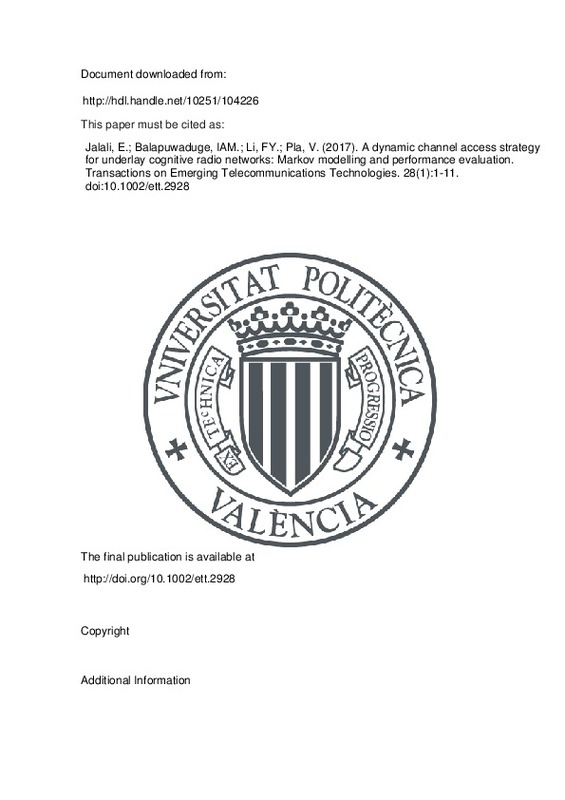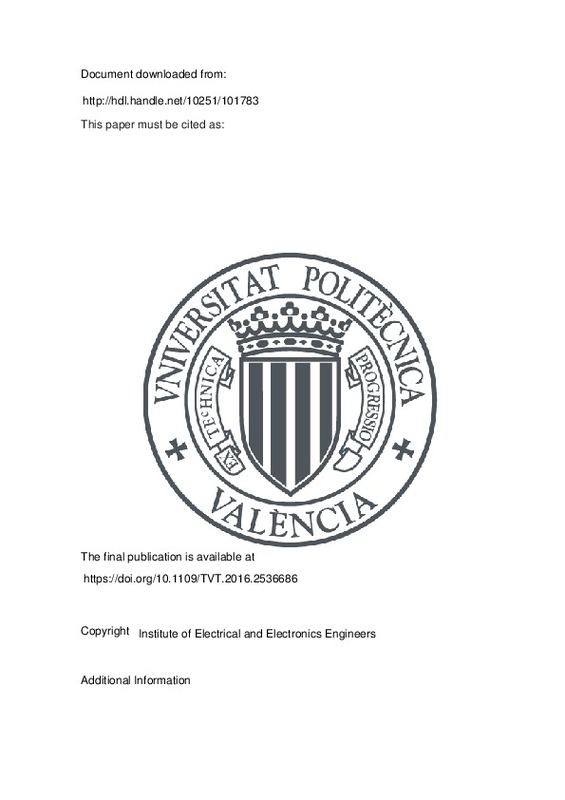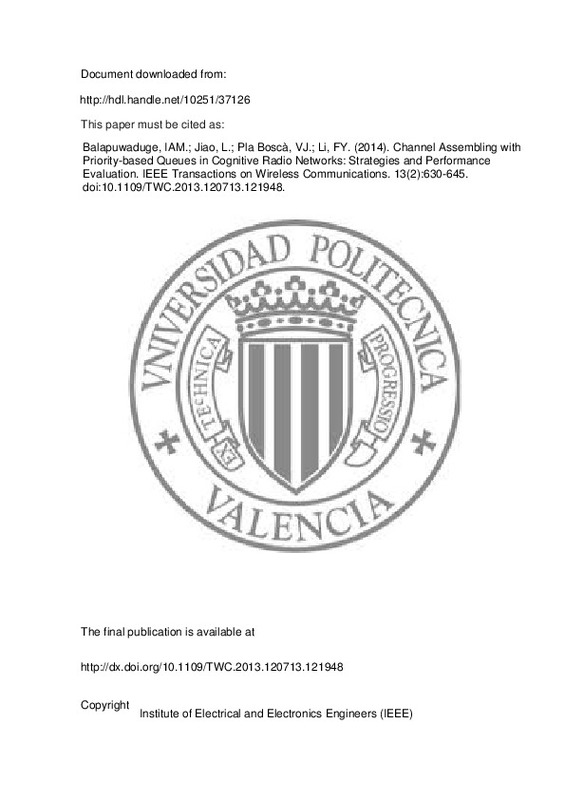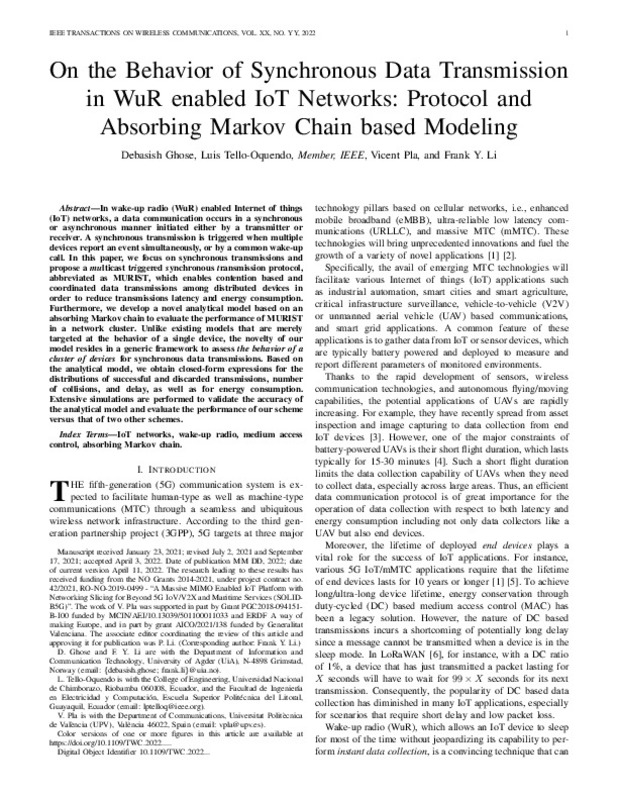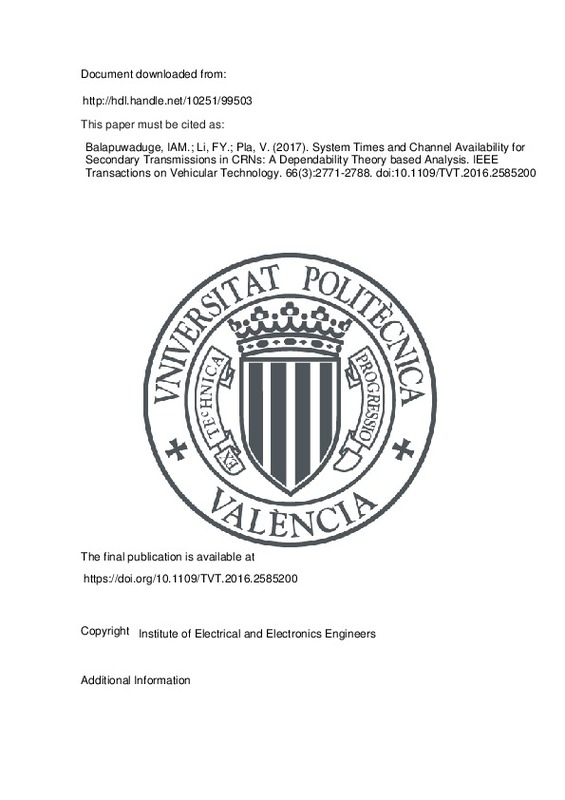

Listar por autor "Li, Frank Y."
RiuNet: Repositorio Institucional de la Universidad Politécnica de Valencia
- RiuNet repositorio UPV
- :
- Listar por autor
JavaScript is disabled for your browser. Some features of this site may not work without it.
Buscar en RiuNet
Listar
Mi cuenta
Ayuda RiuNet
Admin. UPV
Listar por autor "Li, Frank Y."
Mostrando ítems 1-8 de 8
-
Jalali, Elmira; Balapuwaduge, Indika A. M.; Li, Frank Y.; Pla, Vicent (2017)[EN] Unlike in overlay cognitive radio networks, secondary users in underlay cognitive radio networks can access licensed spectrum even at the presence of a primary user, given that the interference caused by the secondary ...
-
Guntupalli, Lakshmikanth; Martínez Bauset, Jorge; Li, Frank Y.; Weitnauer, Mary Ann (Institute of Electrical and Electronics Engineers, 2017)[EN] Duty cycling (DC) is a popular technique for energy conservation in wireless sensor networks (WSNs) that allows nodes to wake up and sleep periodically. Typically, a single-packet transmission (SPT) occurs per cycle, ...
-
Jiao, Lei; Song, Enbin; Pla, Vicent; Li, Frank Y. (Institute of Electrical and Electronics Engineers (IEEE), 2013-05)In cognitive radio networks (CRNs) with multiple channels, various channel-assembling (ChA) strategies may be applied to secondary users (SUs), resulting in different achieved capacity. However, there is no previous work ...
-
Balapuwaduge, Indika A. M.; Jiao, Lei; Pla, Vicent; Li, Frank Y. (Institute of Electrical and Electronics Engineers (IEEE), 2014-02)[EN] With the implementation of channel assembling (CA) techniques, higher data rate can be achieved for secondary users in multi-channel cognitive radio networks. Recent studies which are based on loss systems show that ...
-
Shi, Cong; Wang, Ying; Wang, Tan; Zhang, Ping; Martínez Bauset, Jorge; Li, Frank Y. (SpringerOpen, 2012)[EN] Consider an infrastructure-based multi-band cognitive radio network (CRN) where secondary users (SUs) opportunistically access a set of sub-carriers when sensed as idle. The carrier sensing threshold which affects the ...
-
Ghose, Debasish; Tello-Oquendo, Luis; Pla, Vicent; Li, Frank Y. (Institute of Electrical and Electronics Engineers, 2022-10)[EN] In wake-up radio (WuR) enabled Internet of things (IoT) networks, a data communication occurs in a synchronous or asynchronous manner initiated either by a transmitter or receiver. A synchronous transmission is triggered ...
-
Jiao, Lei; Balapuwaduge, Indika A. M.; Li, Frank Y.; Pla, Vicent (Institute of Electrical and Electronics Engineers (IEEE), 2014)[EN] Flexible channel allocation may be applied to multi-channel cognitive radio networks (CRNs) through either channel assembling (CA) or channel fragmentation (CF). While CA allows one secondary user (SU) occupy multiple ...
-
Balapuwaduge, Indika A. M.; Li, Frank Y.; Pla, Vicent (Institute of Electrical and Electronics Engineers, 2017)[EN] Reliability is of fundamental importance for the performance of secondary networks in cognitive radio networks (CRNs). To date, most studies have focused on predicting reliability parameters based on prior statistics ...
Mostrando ítems 1-8 de 8

Universitat Politècnica de València. Unidad de Documentación Científica de la Biblioteca (+34) 96 387 70 85 · RiuNet@bib.upv.es


